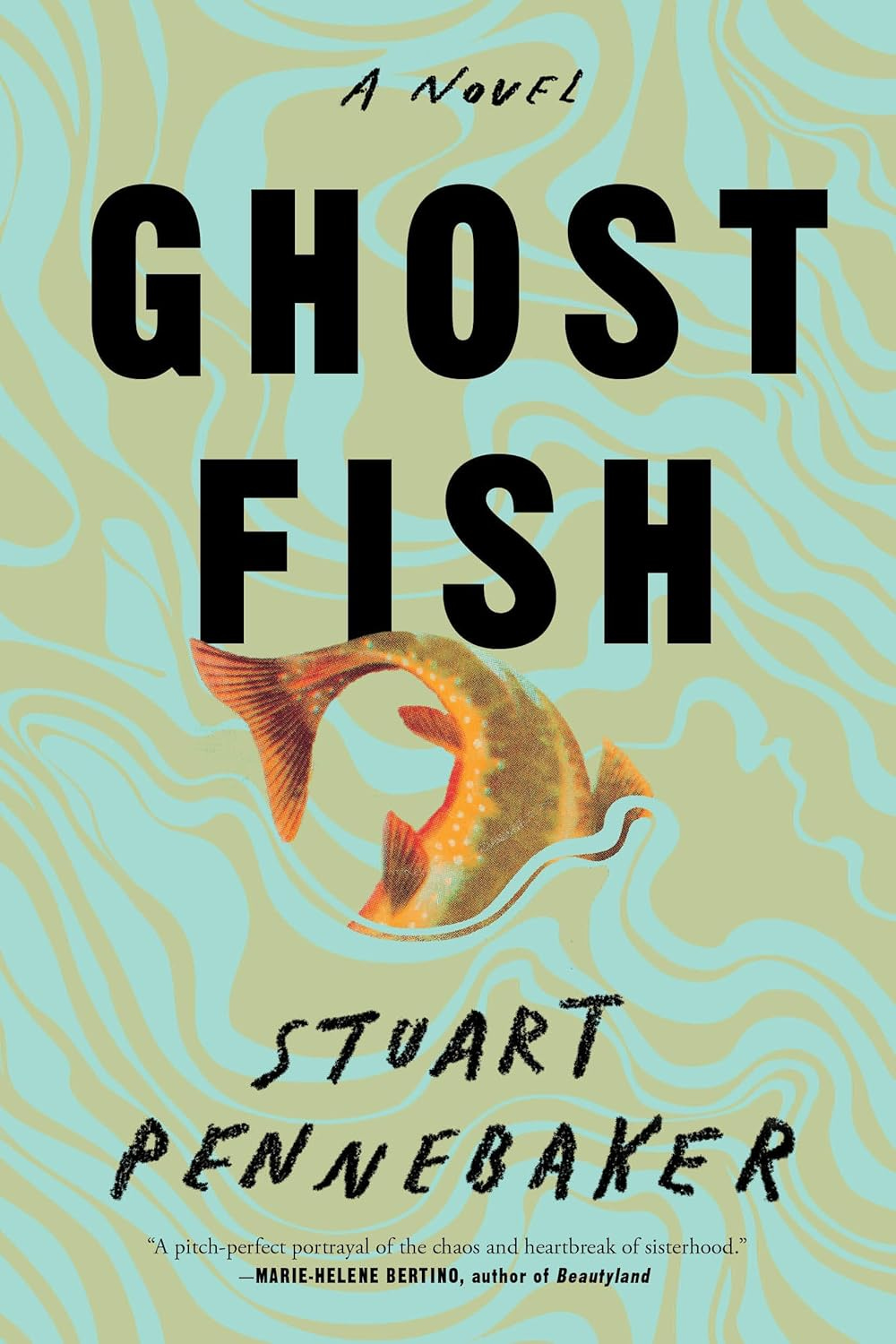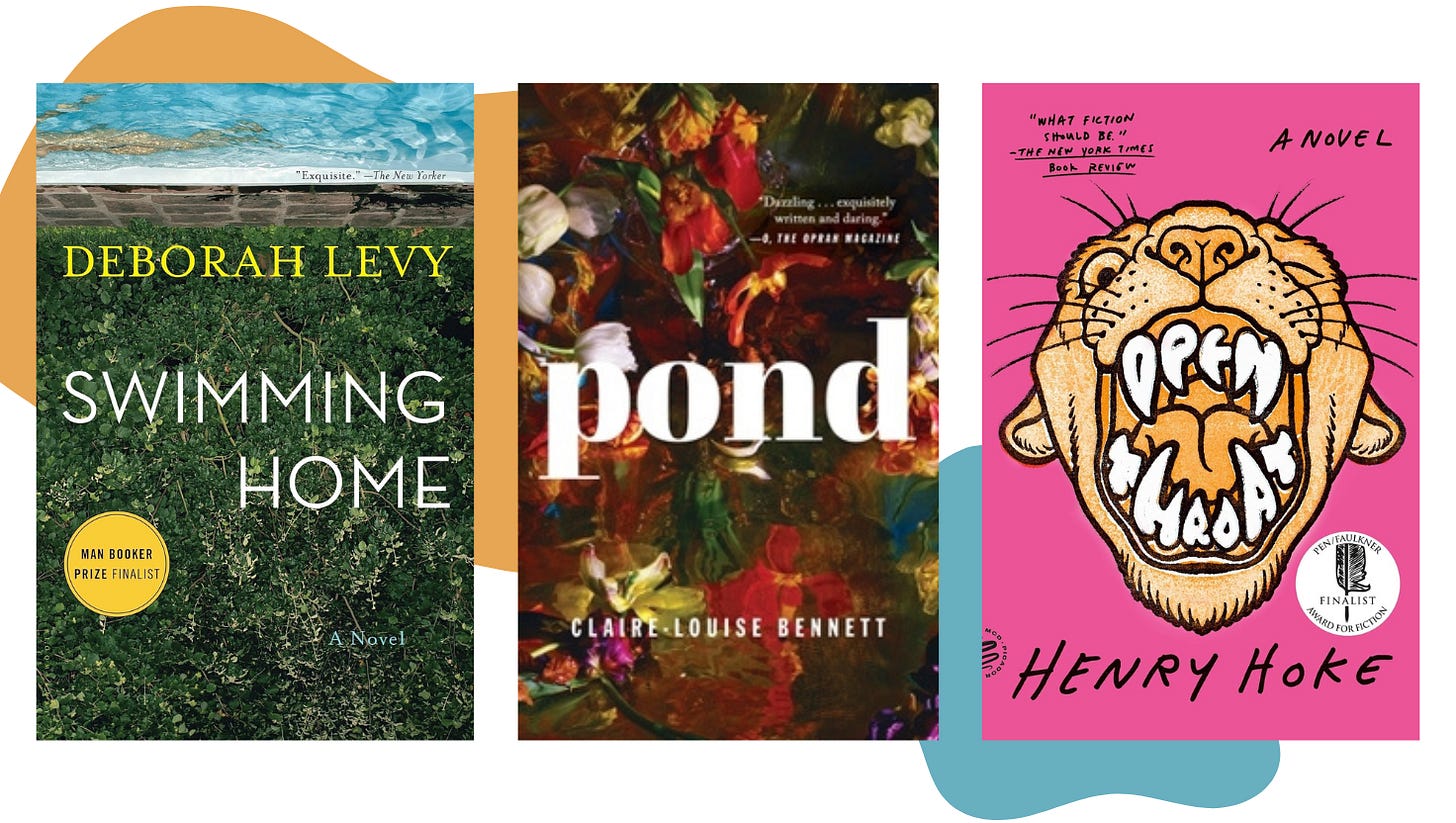Tender with a touch of weird
A reading list inspired by Stuart Pennebaker’s Ghost Fish 👻🐟
Join me for our first-ever Zoom Book Chat on Sept 6 at 1 PM Central! We'll talk about how our reading is going and what plans we have for the rest of the year. This session is just for paid subscribers, and I’ll send the invite a few days before. If you’d like to upgrade, I’m offering a special 25% discount through Sept 6. Hope to see you there!
In an episode of The Art of Editing podcast titled Risk It All, literary critic Merve Emre interviews Jackson Howard, senior editor at FSG, about his path in publishing and the editorial philosophy that drives his distinct taste.
Howard speaks candidly about the early mentorship that shaped his career, the pressure and privilege of being a tastemaker and why risk is essential in both editing and acquiring books. He champions authors who write for themselves rather than markets.
Book publishing is a siloed industry on a corporate level, and it never appealed to me to just read The New York Times Book Review and the best-seller list. The most special cultural items start on the periphery, which is the case with many of the authors FSG publishes. Jonathan Galassi famously plucked Jonathan Franzen’s first novel out of a slush pile. That’s kind of the way that I’ve carried on—of keeping the faith that what you love can also speak to other people.
Jackson seeks work that surprises him, books that punch [him] in the face but also books that he feels so emotionally connected to that he wants to discuss them with his friends. I reference this interview regularly because it so beautifully articulates what I look for in a book and I was thinking about it again as I was reading Stuart Pennebaker’s beautiful debut novel, Ghost Fish.
👻🐟📚 Ghost Fish by Stuart Pennebaker
The main character in Ghost Fish is Alison, 23, who relocates to New York City's Lower East Side to attempt a fresh start after losing her younger sister (who tragically drowned) along with her mother and grandmother. Grappling with deep grief and isolation, she finds a job as a restaurant hostess at a hotel restaurant that resembles a Wes Anderson movie set. One night as she gets home from work, Alison encounters a ghost that takes the form of a fish. She instinctively knows that the ghost is her late sister and keeps this “ghost fish” close by, carrying it in a pickle jar wherever she goes, from the restaurant to the subway to her own room.
The ghost fish becomes both a lifeline and a confessional presence, offering comfort even as it reflects Alison’s inability to fully engage with life around her. As her life begins to broaden with friendship, potential romance and a trip to Key West, Alison must confront a painful question: is this spectral presence guiding her toward healing or anchoring her away from fully living? The novel is a gentle, emotionally rich meditation on grief, loneliness and the weird ways in which we manage to make it through the world despite the heaviness of it all. A book about folding napkins and wiping menu books as your heart is breaking and the very last drips of hope are draining from your soul.
I have already recommended this book to so many friends and I know that the very mention of the ghost fish sounds like too much for some of you. I get it. I remember getting similar looks when I went nuts over Henry Hoke’s Open Throat (a queer a mountain lion, really?! 😂😂) And as someone who reads a lot of straight out heavy and serious works of fiction, I must say that I was surprised by how much I loved the magical aspect of this story. As kooky as it sounds, the image of that ghost felt so perfectly reasonable in the context of all encompassing grief. The magical thinking that produces the fish is guided by profound sadness, loneliness and despair but also signifies the possibility of hope, friendship and finding closure despite it all. Above all, this book felt to me like a call for radical empathy and compassion. A book that takes a big aesthetic risk and, playfully, invites you to consider the blurred boundaries between sadness and longing, love and grief, romance and friendship. Where does memory end and hallucination begin? Who is to say? Who gets to decide?
As I finished the book, I thought… wow… this was so tender and so… weird. And I laughed about my own spontaneous reaction because I love that combination so much and I love Stuart for allowing that very particular book into the world. I am currently at work on a novel that started as a very straightforward piece of historical fiction but once I started writing, my imagination took over and things came out on the page that I have no clue where they came from. I know it will sound insane but there were so many moments when I felt I was just writing at my desk and then an alien force zapped my brain and, like a demon, my eyes turned green and I connected to some space force that made me write what I wrote. And so much of the writing process then becomes this weird negotiation between serving the book you THOUGHT you were writing and serving the book that actually is coming into the world THROUGH you. Reading Ghost Fish as a writer felt really helpful in the way that it reminded me to just GO THERE and allow the book that is pushing its way through you to be the book that you share with the world. That’s really brave and inspiring.
If you are looking for more books that fall into the TENDER WITH A TOUCH OF WEIRD category, here are three more recommendations from me. And if you have read these and/or like books that are aesthetically daring, formally unusual but still tender and humane, please share your recommendations with us too
📚 Swimming Home by Deborah Levy
A poet and his family arrive at a French villa only to be unsettled by the naked body of a young woman floating in their pool. For inexplicable at first reasons, the poet’s wife invites the stranger to stay at the villa with them. This is my favorite Deborah Levy novel yet and I just loved how emotionally complex it is, revealing buried grief, erotic tension and psychological estrangement. A master surrealist, Levy creates a visually delightful story: a floating dress, a silent scream, a swimming pool that feels mythic, and these strange touches amplify the novel’s off-kilter atmosphere. Nothing is quite as it seems. Like Ghost Fish, it’s a story of emotional undercurrents rendered with grace — tender, haunted and strange.
📚 Pond by Claire-Louise Bennett
This fragmentary novel unfolds in the mind of a solitary woman in a seaside cottage. Everyday moments — eating porridge, fixing a gate — become odd, poetic and deeply felt. Bennett’s narrator is tender, funny and just a little unhinged, turning mundane life into a surreal interior world. Like Ghost Fish, Pond is less about plot than atmosphere — strange but alive with offbeat charm.
📚 Open Throat by Henry Hoke
This is a Jackson Howard edit and narrated by a queer mountain lion beneath the Hollywood sign. I remember being so shocked and weirded out by this book, it was like nothing I’d ever read before. Open Throat is the sweetest story of loneliness, desire and survival. Hoke’s voice — poetic and raw — makes the surreal premise feel urgent and intimate. Longing for connection and visibility, the narrator devours the world with awe and ache. Like Ghost Fish, this book is unabashedly weird and emotionally exacting in equal measure.
🤓 Some questions for you:
What’s a book that felt strange at first but stayed with you?
Do you have a favorite novel that blends the surreal with the deeply emotional?
What kind of “weird” feels good to you in fiction? And what kind feels like too much?







I am grinning from ear to ear!!!!! Thank you for this beautiful and generous read, Petya. It has been tricky trying to explain that while it is a novel about a ghostly fish, it's still (I hope) serious and sad and strange and funny, all the emotions that loneliness and grief make us feel. I get why that element sounds a little gimmicky or YA-leaning ("wait...a fish?" is something I get a lot at parties, haha) so I'm beyond delighted that it landed for you. I hadn't written anything with an element of magical realism before this, it snuck up on me in a way that sounds similar to what you're working on (which I absolutely cannot wait to read) and it's been (mostly) fun and really interesting to see how different readers react to that part of the book.
I also have to say that you are just the most perceptive reader, Deborah Levy is one of my all time favorites (as I've gushed about here before) and I also read Pond my first year in New York, which was one of the books that I think gave me some kind of a subconscious permission to go in a more unreal direction in my writing. The Seas by Samantha Hunt is another tender/weird and stunning novel that was so important to me as I was trying to figure out the "rules" of the ghost fish. I somehow have not read Open Throat yet but moving that to the top of my list!! (After The Wall of course...) Can't wait for book chat!!!! 💙
I have to add Kevin Wilson’s Nothing to See Here!!! Don’t know if you’ve read it or encountered it already, but the novel is about a woman nannying her high school best friend’s twins for the summer (the caveat is that the twins just happen to spontaneously combust whenever they’re upset). Although totally bizarre, this one is so heartfelt and optimistic :,) can’t wait to see what everyone else adds to the list !!